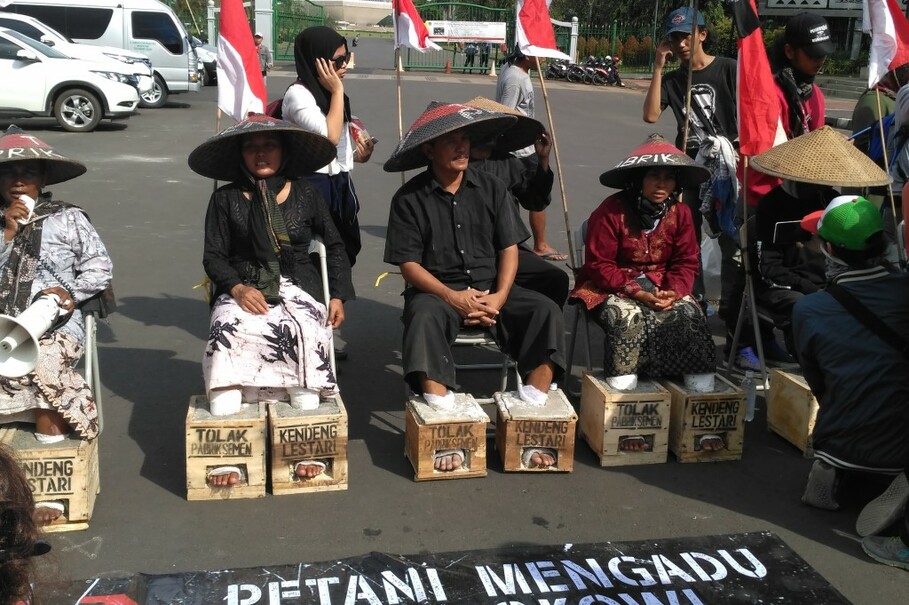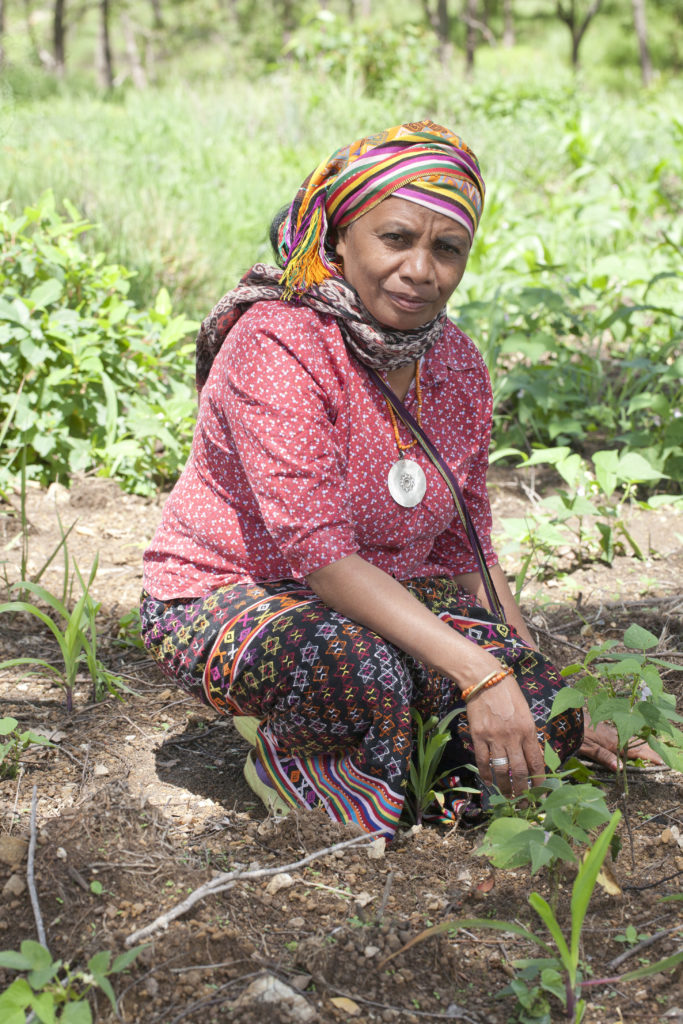
Cement companies are looking to expand both mining and production on Kendeng Mountain, in central Java, Indonesia. Kendeng Mountain is located in a karst, or limestone, mountain range. It is also rich agricultural land. Women farmers in the area have protested, organized, militated, with great success, but the corporations keep coming back. Sometimes, women mobilize with the great movement of marches. Sometimes, women mobilize by concentrating all the energy into staying perfectly, and immovably, still. The Nine Kartinis of Kendeng, nine fierce women farmers, have opted for the latter. They planted their feet in cement, let the cement harden, and refused to move. Sometimes, women on the move are women being absolutely, perfectly, loudly, hilariously, outrageously still.
This battle has been going on since at least last year, but for the Kartinis of Kendeng, who hail from the Samin community of Central Java, it’s another chapter in a centuries’ long struggle. From the earliest struggles to today, Samin women have organized to preserve and promote the integrity of the Earth, the land, and the peoples who work and live with the land. In the latest iteration of that struggle, women have named themselves after Raden Adjeng Kartini, a leading Indonesian feminist freedom fighter who lived from 1870 to 1904. R.A. Kartini was born in Java during the Dutch colonial occupation, and worked for independence, women’s emancipation and girls’ education. The Samin community, also known as Sedulur Sikep, also began during the Dutch colonial era. The founder, Samin Surosentiko, advocated non-violent resistance to colonialism. This resistance took the form of non-violent civil disobedience. People refused to build roads, pay taxes or participate in forced-labor. Refusal as resistance, from R.A. Kartini to the Samin community to today’s Nine Kartinis of Kendeng, and what better way to refuse than to plant one’s feet into blocks of cement and refuse to move?
That’s what nine women did last year. The cement factory has been `in process’ since 2014. Women have led the opposition. Last April, “nine middle-aged women cast their legs in concrete during 36-hour protest against the cement plant outside the presidential palace in Jakarta”. In October, they led 300 farmers in a long march to protest a new government decision to reinstate the legality of the cement factory. They’re still on the move.
At last April’s protest, Sukinah, the spokeswoman for the Kartinis of Kendeng, explained that the protest was as much educational as immediately political, “We want to give a message for the younger generation, to show that nature is not only seen as a source of wealth, but also something that has to be preserved.” More recently, she added, “I will fight to my last drop of blood because our ancestors fought for this land for hundreds of years, and that’s why we now can enjoy the water and the fruits from this land. We won’t allow it to disappear like that.”
In their struggle, the Kartinis of Kendeng link arms with Aleta Baum, who, in the Indonesian part of the island of Timor, organized indigenous women’s weaving circles that crushed the marble mining companies. The Kartinis of Kendeng also link arms with Mavis Staples and all those women engaged in Black Liberation struggles and labor struggles across the United States. In Indonesia, women farmers planted their feet in cement, and off in the impossibly intimate distance, one can hear, “… Just like a tree that’s planted by the waters, we shall not be moved.”
(Photo Credit: Jakarta Globe / Komnas Perempuan) (Video Credit: Film First / YouTube)
